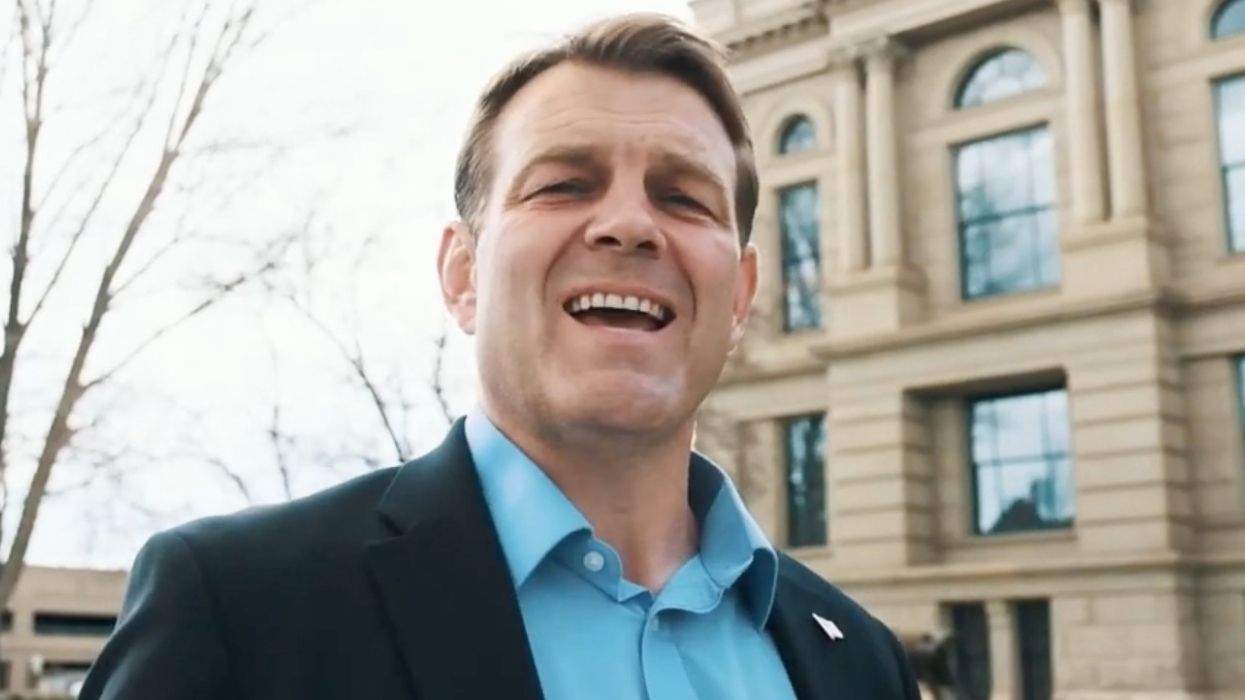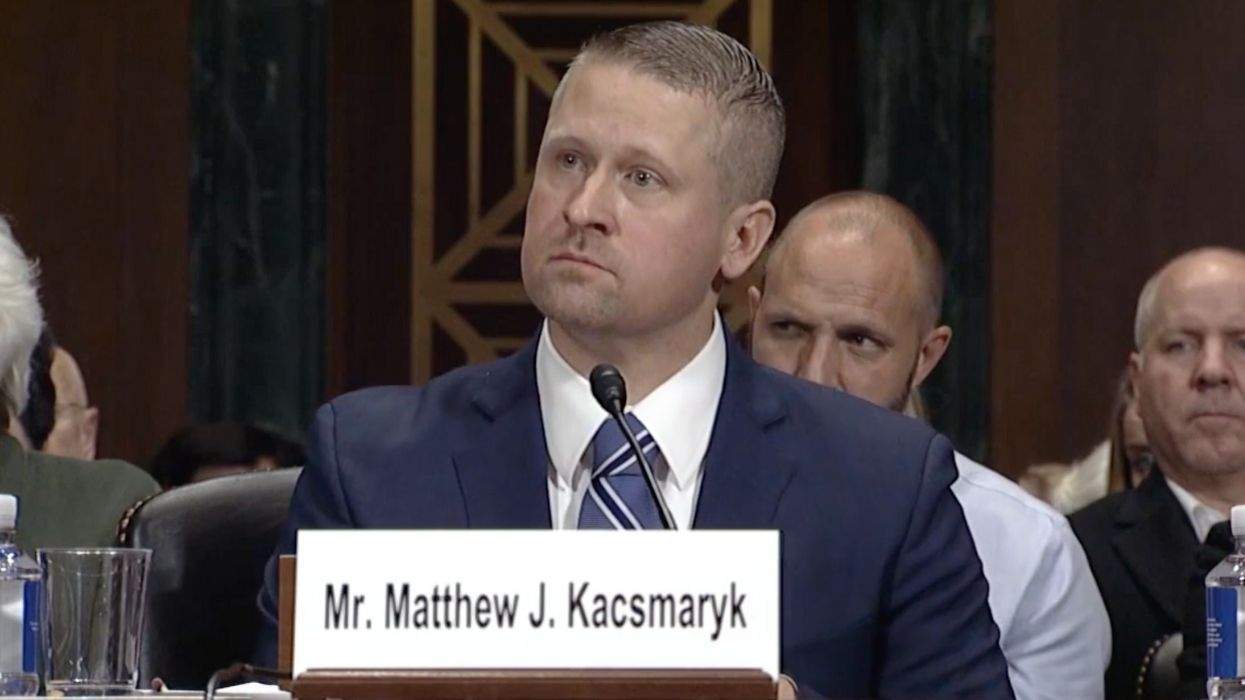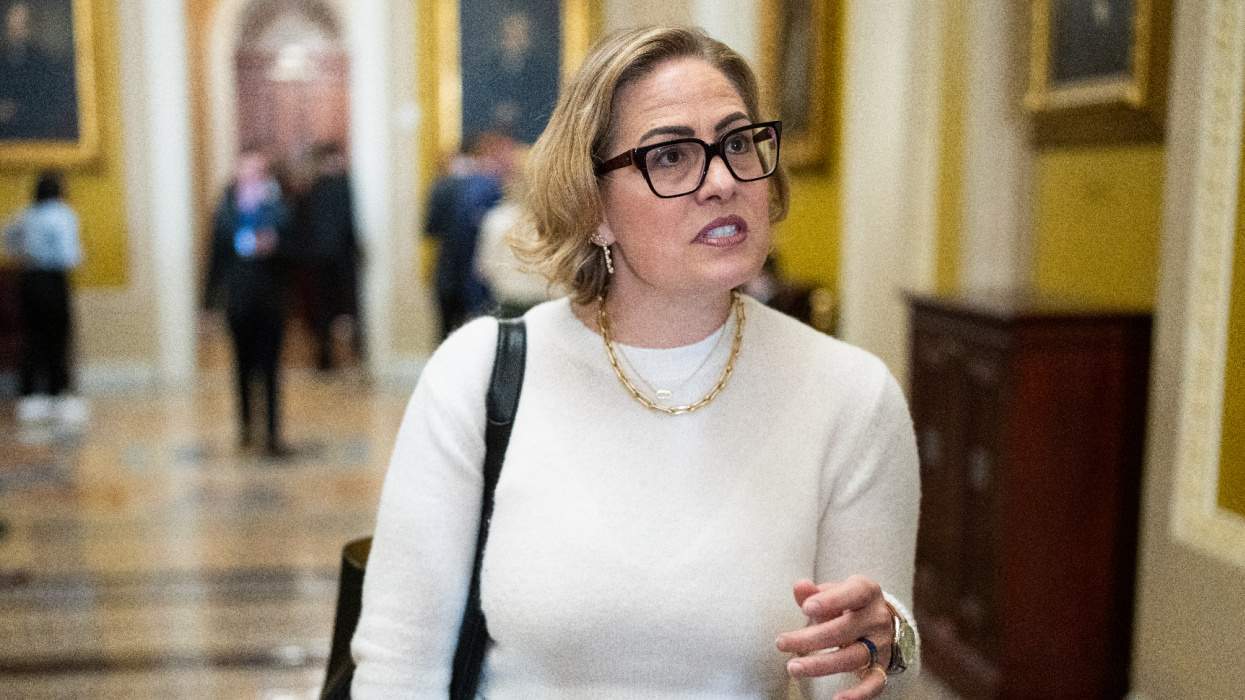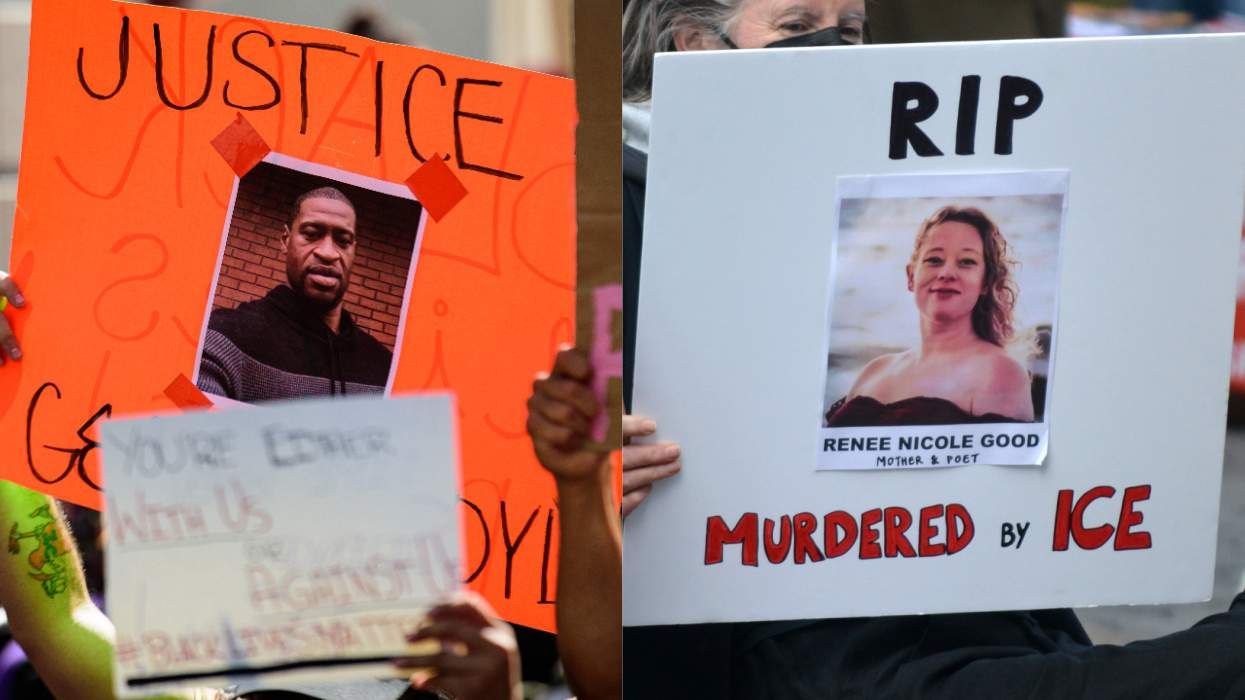A federal judge partially blocked Alabama's law on Friday that criminalized providing gender-affirming care to trans youth.
The preliminary injunction by U.S. District Judge Liles Burke in the case of Rev. Eknes-Tucker v. Ivey prevents Alabama from implementing the ban on prescribing gender-affirming treatment including providing puberty blockers and hormone treatment to trans minors until a lawsuit against the law progresses.
Alabama Gov. Kay Ivey signed the bill into law last month. According to the Associated Press, she said the injunction was a "temporary legal roadblock.
The law, called the Vulnerable Child Compassion and Protection Act, made it a felony for medical professionals to provide gender-affirming medication to trans minors. It also carried a prison sentence of up to 10 years. It's the first state to pass such a law.
In his ruling, Liles, who former President Donald Trump appointed in 2017, wrote, "Defendants produce no credible evidence to show that transitioning medications are 'experimental.' While Defendants offer some evidence that transitioning medications pose certain risks, the uncontradicted record evidence is that at least twenty-two major medical associations in the United States endorse transitioning medications as well-established, evidence-based treatments for gender dysphoria in minors."
Liles said that Alabama's "proffered justifications are hypothesized" and "not exceedingly persuasive." He also added that there is no evidence of medical professionals pushing for gender-affirming medication for minors. Over 20 medical organizations came out against the law, encouraging Burke to block it.
The Rev. Paul Eknes-Tucker, senior pastor of Pilgrim Church in Birmingham, four Alabama parents, and two health care providers filed the suit against the law in April. The suit argues that the law is not only discriminatory, but it violates the children's right to equal protection and free speech.
The Justice Department had also joined the lawsuit.
Parts of the law, however, remain in place. Gender-affirming surgeries on minors are still banned -- which medical professionals have repeatedly said is seldom done and, as the AP reports, doctors have said those surgeries are not done in the state. Counselors and school officials are still required to tell students' parents if the student tells them they are trans.
In a statement, Ivey said, "We will continue fighting to protect Alabama's children from these radical, unproven, life-altering drugs, despite this temporary legal road block," according to the AP. She added, "It is especially important while they are at such a vulnerable stage in life. We will continue to uphold our duty to ensure that children are free to grow up into the adults God intended them to be, even with today's societal pressures and modern culture."
LGBTQ+ rights representing the families have praised the ruling as a victory.
"This ruling means that parents of transgender children in Alabama will continue to be able to make the healthcare decisions that are best for their families. It is an extraordinary relief. Parents should not be punished for wanting to do what's best for their kids," said Jennifer Levi, GLBTQ Legal Advocates & Defenders' transgender rights project director in a statement.
"A state should not criminalize parents and doctors for following medical guidelines and providing needed medical treatments," National Center for Lesbian Rights' senior staff attorney and transgender youth project director Asaf Orr said.
One of the parents involved in the suit said that they will continue to fight not only for their child but for trans children across Alabama.
"This ruling means that we will be able to continue providing our child with the medical care he needs and nothing could be more important or more of a relief to our family," James Zoe, father of 13-year-old Zachary, said. "Alabama is our home and we hope this cruel law will not be allowed to force us from it. We are fighting for our child and will [continue] fighting so that he and all transgender youth in Alabama remain able to receive appropriate medical care."
The law is only one of a number of bills seeking to restrict the rights of trans youth ranging from anti-trans sports legislation to "don't say gay" laws.
















Charlie Kirk DID say stoning gay people was the 'perfect law' — and these other heinous quotes
These are some of his worst comments about LGBTQ+ people made by Charlie Kirk.